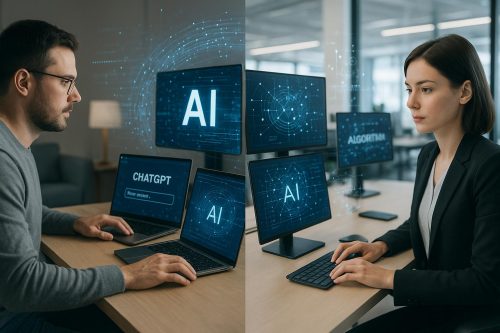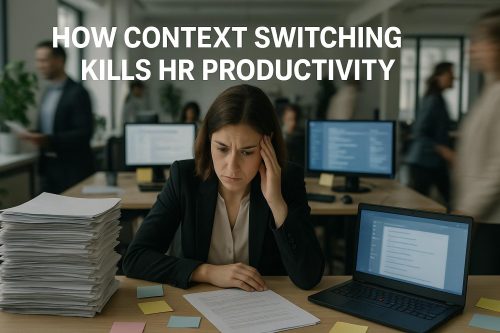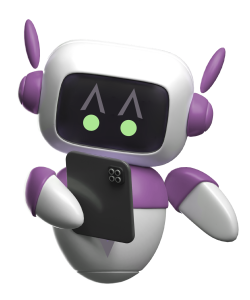For modern HR departments, the potent mix of AI, HR, and ethics is akin to firefighting – mitigating tension, exploring thorny dilemmas, and reconciling rival interests. The benefits of this technology are clear – it can automate and accelerate HR processes like never before – but its downsides are just as stark, and we’d be foolish to ignore them. The question is, can we trust ourselves to use AI wisely, for the greater good?
The AI tidal wave is transforming human resources in very real ways, and the effects are being felt now. Two-thirds of workers would avoid applying for jobs where AI makes hiring choices, according to a Pew Research survey. When HR leaders prioritize fairness and ethics in AI development, they can earn the trust of their employees – a critical component of success.
Artificial Intelligence Takes the Wheel in HR
There’s a time-honored trilogy in storytelling: the Angels, the Devils, and those folk stuck in the middle.
With AIchandleling tasks like automated resume screening, HR professionals can shift their attention to crafting a rich, engaging onboarding experience that sets the tone for a successful, long-term collaboration. However, these same tools can perpetuate bias if not carefully managed. It’s time to prioritize morals in HR; AI should always put people first, doing what’s right not just what’s efficient.
Streamlining Hiring and Removing Bias (Ideally)
AI offers the potential to quickly filter through thousands of resumes, identifying top talent based on objective skills and job experience. Screening just got a whole lot smarter with the aid of artificial intelligence systems providing top-notch talent identification. What if you could zip through reviews at lightning speed, freeing yourself from the drudgery of manual checks and the subtle errors that can come with them?
However, the dataset used to train an AI system directly impacts the results. The experts at McKinsey crunched the numbers, If AI falls into the wrong hands, it can Inflate bias, making it even harder to correct. We need to get the training data just right and eliminate biases to keep the hiring process fair and square.
Imagine crossing the finish line on day one, ready to tackle the biggest challenges – that’s what our streamlined onboarding and training experience is all about.
Onboarding and training – those pesky gates that can stifle productivity – can be supercharged with AI’s help, letting humans tackle more pressing matters. Automated paperwork, customized learning experiences, and targeted upskilling opportunities are just a few possibilities. Suppose you could pinpoint ideal candidates and create customized learning blueprints that unlock your team’s full potential – AI makes that a reality, accelerating growth and progress across the board.
Navigating the Ethical Minefield
Ethics in AI for HR is not an afterthought; it is fundamental. AI systems, HR professionals, and ethical considerations must be intertwined. Addressing these concerns is critical for successful AI implementation.
Here are five vital aspects of HR AI ethics to address for ethical AI in HR. Ignoring these aspects can lead to unintended consequences and erode trust in AI systems.
| Ethical Concern | What You Can Do |
|---|---|
| Bias and Fairness | Conduct regular bias assessments throughout your hiring process. To start, gather and assess your DEI metrics – this will help you identify where biases may be hiding. Unleash the power of AI by confrontiang its Achilles’ heels with this vital information. Fairness in AI design can’t be an afterthought; it needs to be baked in from the start, or you riskExclude some of the best minds from the development process. Make candor a core part of your hiring process by openly sharing your use of AI with job candidates – it’s a trust-builder. According to the pros, The more openness there is, the more willing candidates are to participate in AI-driven processes – it’s a trust thing. |
| Protecting personal info is at the top of everyone’s list nowadays, and for good reason. Confidentiality matters more than ever. | Ensure complete transparency about data collection, storage, and use with job applicants and employees. Anonymize data to protect individual privacy rights. As AI becomes more entrenched in our daily lives, understanding the legal framework surrounding personal data is no longer optional – it’s a necessity. For an AI system to be truly ethical, it needs to have a foundation built on respecting employee privacy – no exceptions. Even when AI is lending a hand, caution is essential – especially when personal data is on the line, as with employee performance evaluations. |
| Accountability | Always maintain human oversight in HR processes. Critical HR decisions, like firing or reviewing an employee’s performance, require a human touch – don’t let automation make the call alone. Performance management and talent acquisition can be messy, but HR professionals and managers are the experts who can neatly tie up loose ends, reconcile differences, and uncover innovative solutions. Human intervention is necessary to catch AI errors, correct bias, and ensure accurate, ethical decision-making in compliance with human resource laws and DEI goals. For specific guidance and compliance with DEI, explore member resources and join SHRM. |
| Protection from threats is a daily routine, and only a sturdy defense can keep the wolves at bay. | Implement robust security measures to protect AI systems and chatbots from cyber threats. Follow all data privacy rules according to regional and national regulations. Trusted HR data starts with a secure system – the foundation of strong AI relationships. This also includes protecting data gathered through monitoring tools or by analyzing the natural language used by various employee groups. |
| Transparency | Be open about how AI tools are used in HR processes. As a result, you’re not just boss or recruiter – you’re a trusted partner, ally, and advocate in the eyes of your team and potential talent. Carefully vet third-party vendors providing AI-driven recruitment services to ensure their practices align with your ethical standards. HR pros need to set the tone for a workplace where everyone feels seen, heard, and valued, period. Building on your skills and adopting what works best from others can make all the difference. Empower your workforce to thrive by adopting HR principles that encourage learning, development, and seamless performance management – it’s a recipe for success. By being early adopters of fresh technologies, HR pros can revamp the way they apply HR principles, fairness always top of mind. Armed with trusted sources, they can find the perfect fit by leveraging descriptive job postings and hands-on tools. With SHRM’s ethical AI credentials, HR professionals gain the skills they need to take on the biggest challenges in AI development. You may need to understand HR certification compares, study eligibility criteria, or find exam details. For HR professionals, getting guidance on ethical considerations in HR practices is just a step away – SHRM Bask offers a range of instructor-led learning opportunities and study aids to help them make informed decisions. Whether they’re new to the field or seasoned pros, HR professionals know that staying certified and making ethical decisions is critical. SHRM learning resources offer the perfect blend of knowledge and know-how to help them excel. |
FAQs about AI, HR, and ethics
What are the ethical issues with AI in HR?
There are a number of moral gray areas companies need to grapple with, including algorithms and employee surveillance, all while trying to achieve a higher level of transparency in their dealings. When HR processes are tainted by bias, the result is often unequal treatment and a fractured sense of trust. Privacy rights hang in the balance when AI systems are handling sensitive data – it’s their responsibility to get it right.
What are the 3 big ethical concerns of AI?
Three major ethical concerns are bias, privacy, and job displacement. Build AI systems that actively resist amplifying the biases we’re trying to overcome. Safeguarding employee privacy is crucial, and responsible data handling is a close second. As we delve into the automation revolution, let’s not forget the Human Factor – preserving jobs is a critical step forward.
What are the 5 ethics of AI?
Five core ethics of AI are beneficence (using AI for good), non-maleficence (avoiding harm), autonomy (respecting human control), justice (fair outcomes), and explicability (transparency). Responsible AI growth in HR hinges on two things: respecting human worth and incorporating value-driven safeguards into our AI systems from the get-go. Make it a habit to check in on the latest HR news, especially when it comes to AI – it’s the best way to anticipate changes in the workplace.
Morality and AI – an unlikely pair? We’re inches away from machines capable of making decisions that shape our society. What happens when ethics enters the equation?
Suddenly, traditional ethics are put to the test by AI’s emerging strengths. Walking the AI tightrope demands thoughtfulness on both sides. Ethical guidelines for AI implementation don’t write themselves, and it’s up to HR professionals to take the reins. To keep things on the up-and-up, we need to pair human smarts with guidelines that respect workers’ rights and make space for tough DEI conversations. Professionals looking to excel in HR can rely on SHRM’s instructor-led training and member resources to confidently tackle HR principles, ethics, and compliance. Join SHRM and you’ll instantly tap into a rich network of supportive peers, vibrant regional councils, and tried-and-true tools – everything you need to thrive in your HR role and make a lasting impact. By leveraging these resources, HR teams can revolutionize their approach to performance management, talent acquisition, and more. They’ll stay informed about legal updates, manage workplace technology, and maintain a safe work environment – all in one place.
Conclusion
Integrating AI into HR ethically is challenging, but crucial. Leaders who take the high road and prioritize ethics in their AI strategy create a technical edge, freeing up HR teams to focus on what matters most. Fair and responsible HR practices start with building genuine trust with the people who matter most – your employees and job seekers. Efficiency and fairness aren’t mutually exclusive. In fact, by getting out in front, we can build a workplace where diversity, equity, and inclusion really mean something – a place where employees are valued, and the law is upheld. If HR professionals can marry AI with a strong moral compass, the payoff for the organization and its employees will be huge.






